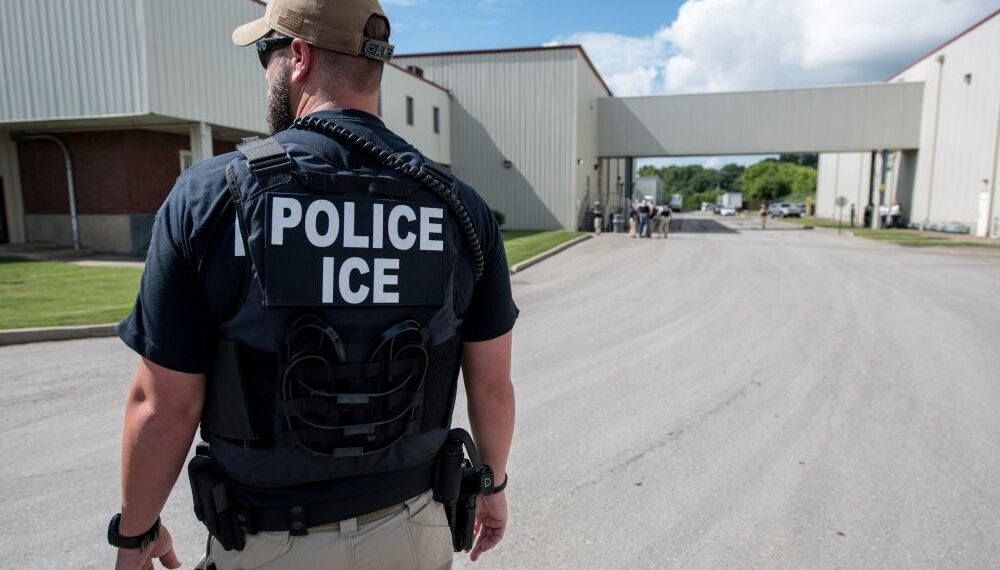BREAKING: A federal judge in Chicago has just ruled that Immigration and Customs Enforcement (ICE) agents can face arrest if they detain migrants at Cook County courthouses without a valid warrant. This unprecedented decision by U.S. District Judge Jeffrey Cummings is igniting immediate debate across the nation.
The ruling comes in light of concerns regarding the safety of undocumented individuals seeking justice in courthouses. Judge Cummings emphasized that these locations should serve as “safe spaces” for all, where individuals can attend hearings without the fear of being apprehended by ICE.
This landmark ruling specifically prohibits ICE from making what are known as “collateral arrests.” These occur when agents apprehend an individual they have a warrant for but also detain others without warrants who may be in the country illegally. Now, without a signed warrant in hand, ICE agents are effectively barred from making arrests in or around courthouses in Cook County, which encompasses Chicago.
Judge Cummings stated that migrants should not face the threat of detention while engaging with the legal system, whether to testify, face charges, or handle civil matters. He cited previous incidents where U.S. citizens were mistakenly detained by ICE, underscoring the need for protections against overreach.
The Department of Homeland Security (DHS) has responded sharply to the ruling. While DHS confirmed it will comply with legal orders, it firmly disagrees with the ruling’s implications. In a statement, DHS declared there are no “sanctuary zones” in the Constitution, asserting, “If someone breaks the law, there’s nothing in the Constitution that says we can’t arrest them where we find them.”
This decision raises critical questions about the balance of power between local judges and federal law enforcement. Legal experts warn that this ruling could set a dangerous precedent, potentially leading to the establishment of more “no-go” zones for immigration enforcement. Activist lawyers and sanctuary city advocates may now push for similar protections in other public spaces, such as hospitals and schools.
The potential implications of this ruling are vast. If ICE officers can be arrested for performing their duties, what message does that send regarding the enforcement of immigration laws? Nationally, this could embolden those who oppose federal immigration enforcement and complicate the already contentious landscape of immigration policy.
As this situation develops, observers are watching closely to see how ICE will adapt to this new legal environment. Will federal agents comply, or will there be challenges to enforce their operations in Chicago and beyond?
UPDATE: The conversation surrounding this ruling is ongoing, and the repercussions may stretch far beyond Cook County. For now, all eyes remain on Chicago, where the intersection of immigration law and judicial authority is being tested like never before.
Stay tuned for further updates on this evolving story.







